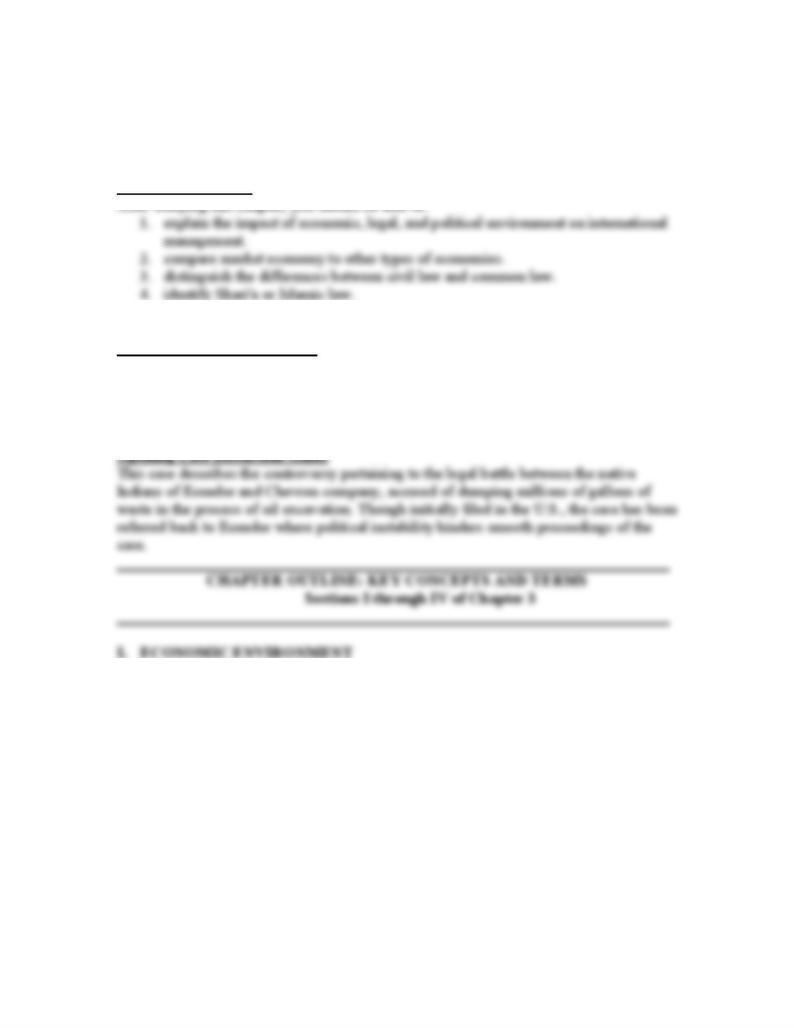
INTERNATIONAL MANAGEMENT Chapter 3: The Economic, Legal, and Political Environment
16
Chapter 3
THE ECONOMIC, LEGAL, AND POLITICAL
ENVIRONMENT
Learning Objectives
5. explain political risk.
General Teaching Suggestions
Introduce the environmental factors affecting management through an anecdote from
business history. Encourage students to express their views on the story. Request the
class to analyze the leading environmental factors affecting business in their home
country.
1. Key Concepts
This section analyzes the popular views on market-driven economies and other
economic systems across the world.
• Economic Analysis Tools
Adam Smith theorized that the freedom to determine prices and competition
without the interference of the government or the guilds would result in the best
economic outcome.
David Ricardo explained why it can be beneficial for two countries to trade, even
though one of them may be able to produce all goods necessary. This theory of
comparative advantage forms the basis of modern trade theory.
Developmental economics studies how nations prosper by identifying a range of
factors that encourage economic development and the competitive advantage of
nations. Three perspectives of this approach are:
i. neoclassical theory,
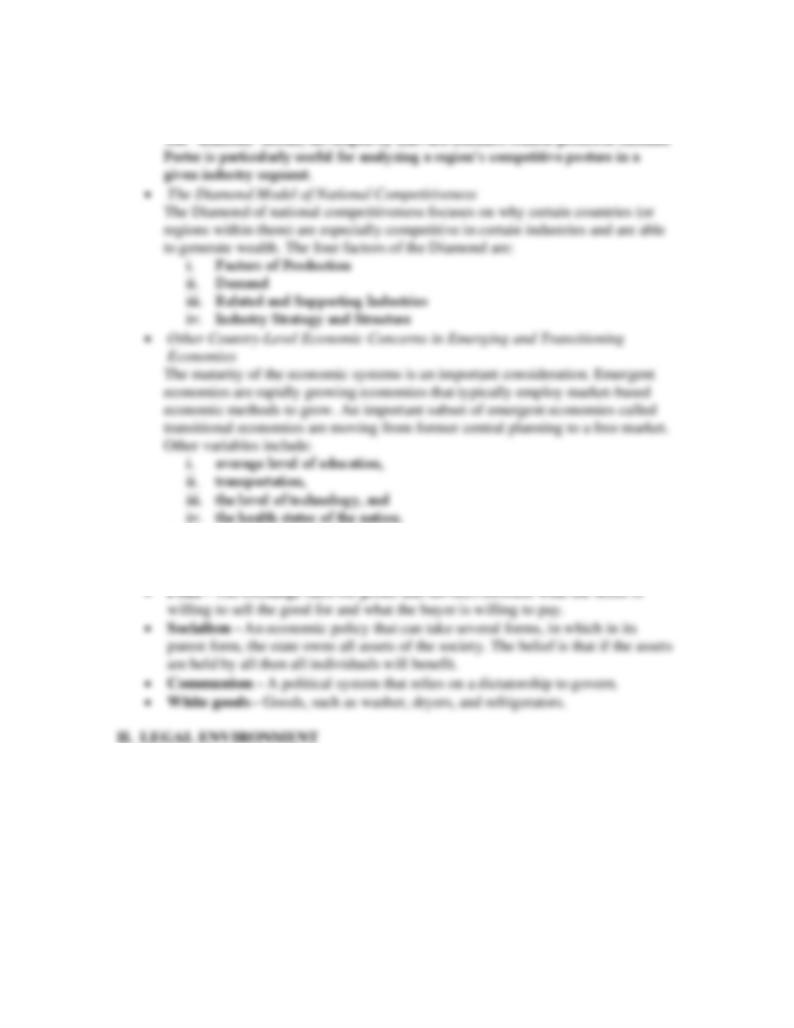
INTERNATIONAL MANAGEMENT Chapter 3: The Economic, Legal, and Political Environment
17
ii. geographic and location theory, and
iii. institutional approach.
2. Key Terms
• Market-based economic system - Relies on individuals in the society to
determine the price of any good.
1. Key Concepts
A firm seeking to understand a market should understand not only its economic
environment but also its legal environment. An important consideration is the status
of the rule of law and whether it exists. The legal and regulatory environment not
only is important to establish how business will operate, it can in fact provide a
competitive advantage to a business.
• Legal Systems around the World
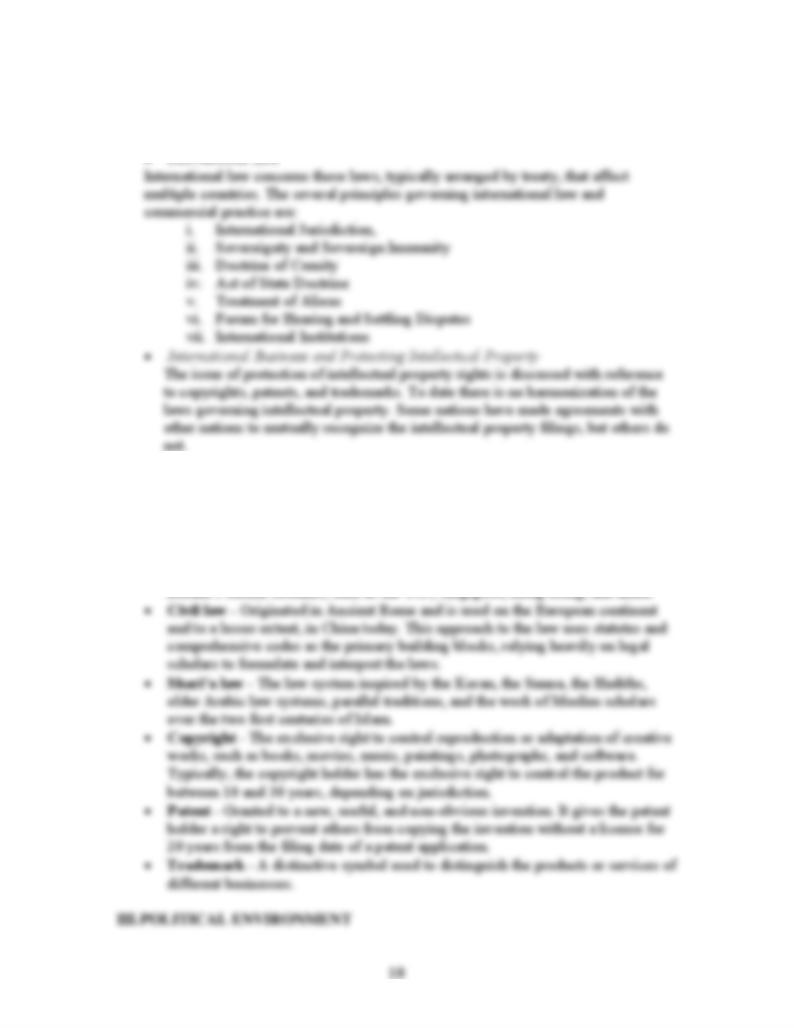
INTERNATIONAL MANAGEMENT Chapter 3: The Economic, Legal, and Political Environment
Most of the world’s legal systems can be classified into two broad categories—
common law and civil law systems. Other legal systems that merit discussion are the
theocratic systems, of which Islamic or Shari’a law is the most important.
2. Key Terms
• Repatriation of profits - The ability of a firm to take the profits it makes in a
country out of that country.
• Common law - Legal systems primarily built on legal precedent established by
judges as they resolve individual cases; those case opinions have the force of law
and strongly influence future decisions. Common law originated in medieval
England and is used in the United Kingdom, the British Commonwealth, and in
Britain’s former colonies, such as the U.S., Singapore, Hong Kong, and India.
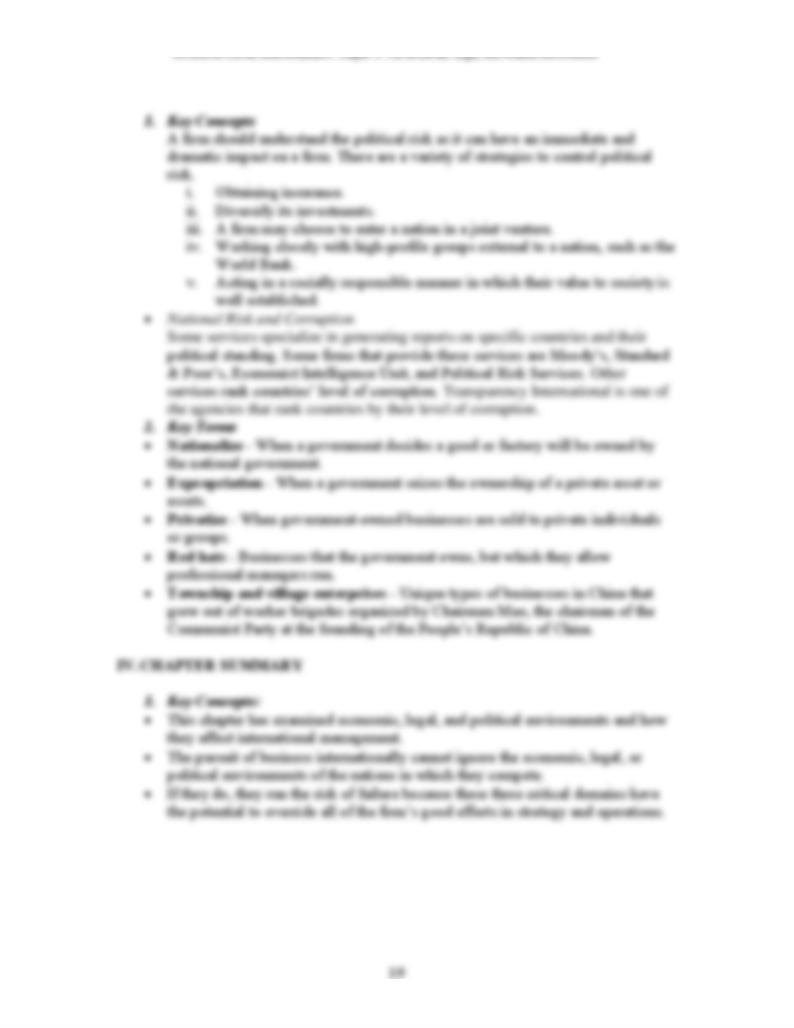
INTERNATIONAL MANAGEMENT Chapter 3: The Economic, Legal, and Political Environment
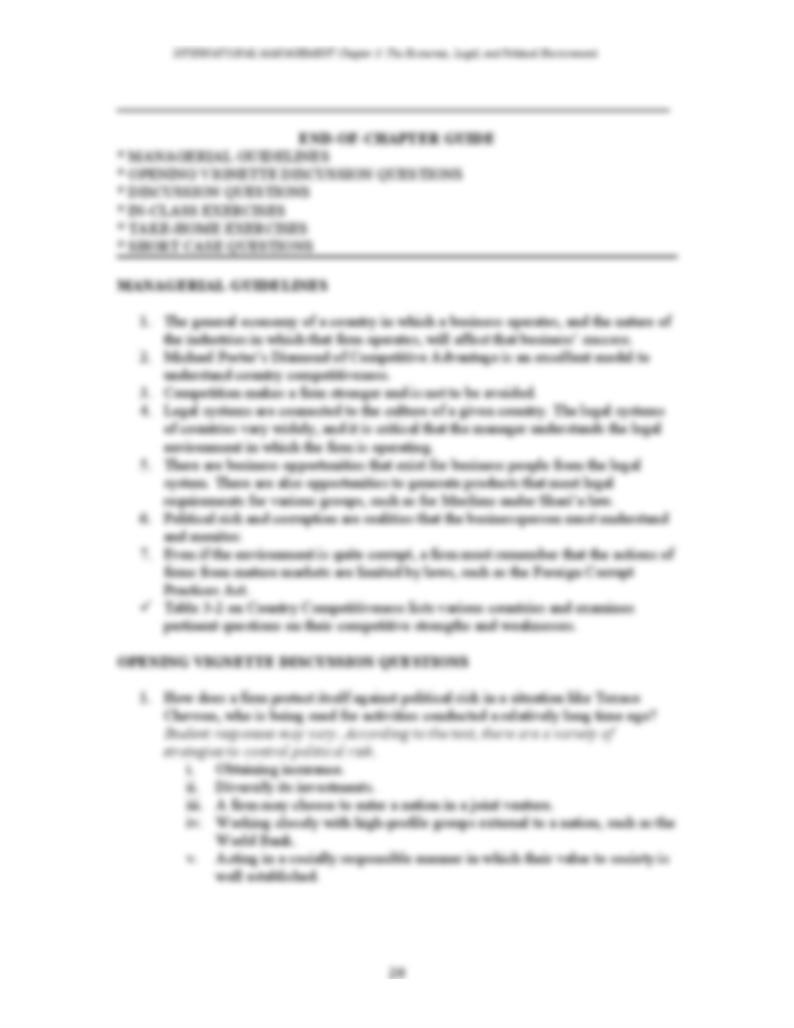
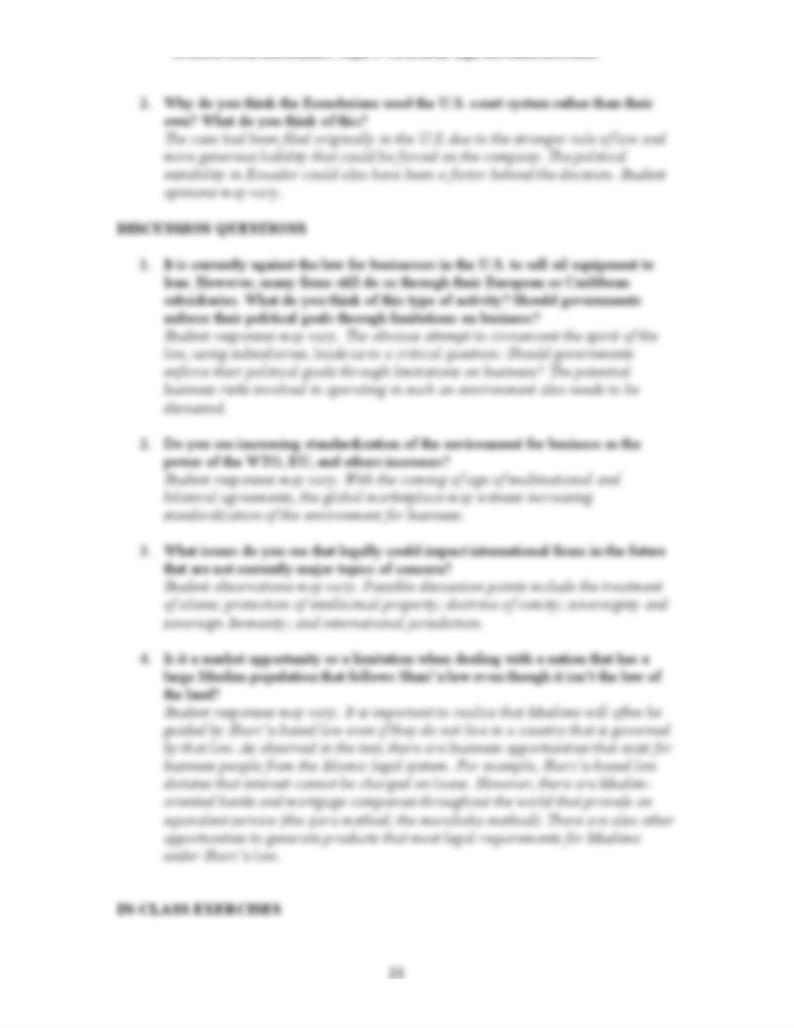
INTERNATIONAL MANAGEMENT Chapter 3: The Economic, Legal, and Political Environment
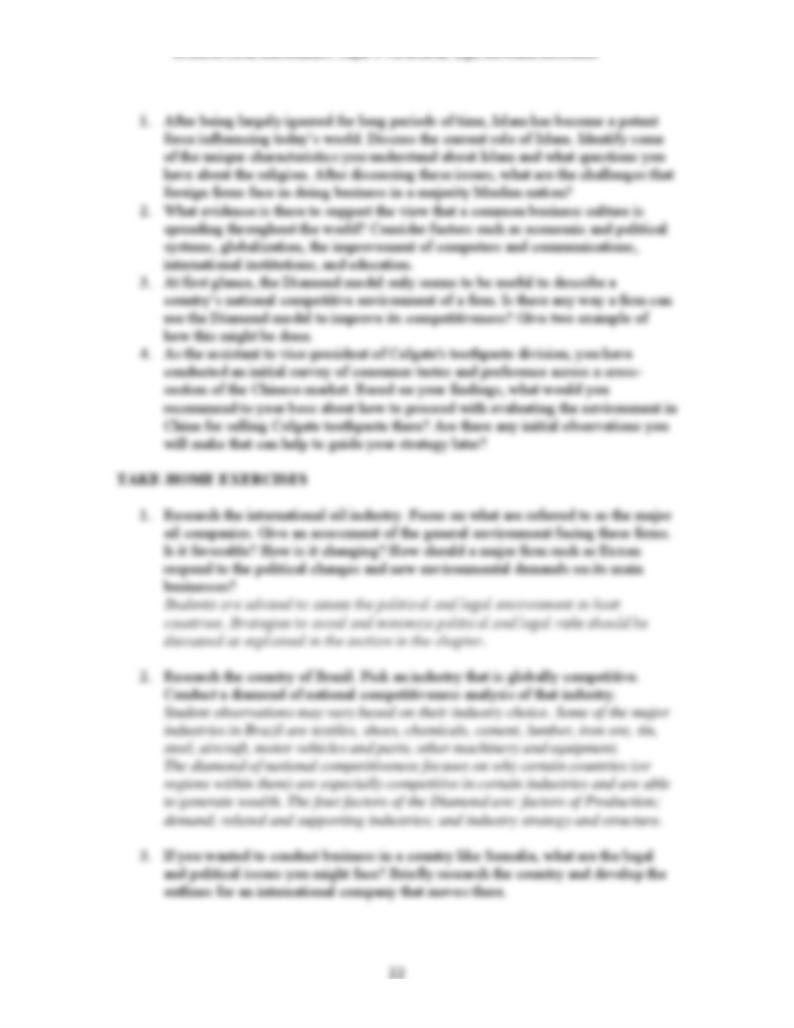
INTERNATIONAL MANAGEMENT Chapter 3: The Economic, Legal, and Political Environment
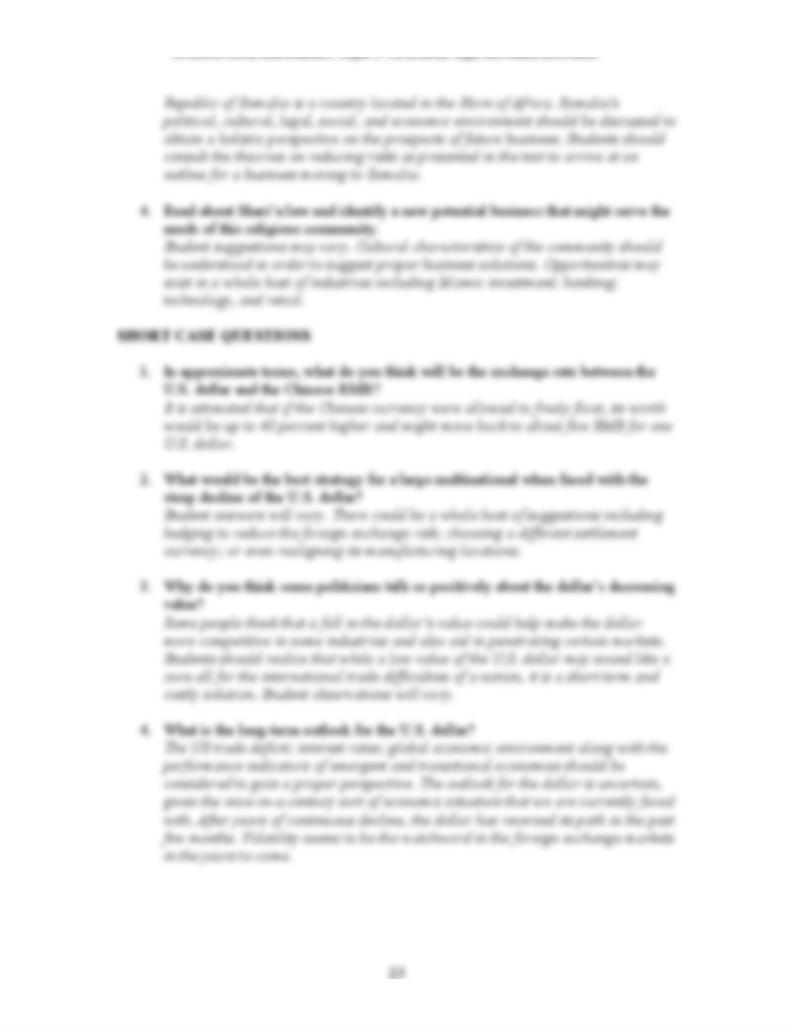
INTERNATIONAL MANAGEMENT Chapter 3: The Economic, Legal, and Political Environment